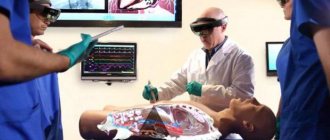A highly effective pain reliever is the drug Lyrica, offered by the well-known manufacturer PFIZER. The main active ingredient in it is pregabalin. Lyrica can be purchased in pharmacies only with a prescription.
The medicine is released in hard gelatin capsules of 75, 150 and 300 mg. They have the Pfizer inscription on the cap. The package can contain 14 or 56 tablets, sealed in blisters.
Features of the medicine
If you take Lyrica tablets on an empty stomach, the active substance is very quickly absorbed into the gastrointestinal tract. Moreover, the bioavailability rate is more than 90%. An hour after taking the drug, the maximum concentration of the substance is recorded in the blood. Eating slows down the absorption of pregabalin, so Cmax is reached in approximately 2.5 hours.
The analgesic effect is ensured by the fact that the active substance is able to reduce the number of electrical signals that come from damaged nerve endings to the brain. Thus, the drug relieves pain and alleviates the patient’s condition.
With long-term use of the drug, physical and mental dependence on it is noted. There is a need to obtain euphoria and pleasant relaxation, regardless of whether there is a need to relieve neuroleptic pain. This is very dangerous, since you will subsequently have to get rid of the addiction in order to avoid dangerous consequences for the body.
Pharmacological properties of the drug Lyrica
Pregabalin (S-3-(aminomethyl)-5-methylhexanoic acid) is an antiepileptic drug. Pregabalin binds to the auxiliary subunit (α2-δ protein) of voltage-dependent calcium channels in the central nervous system, actively replacing [3H]-gabapentin. Experimental evidence has been obtained that the binding of pregabalin to the α2-δ site is necessary for the manifestation of analgesic and anticonvulsant effects. In addition, pregabalin reduces the release of certain neurotransmitters, including glutamate, norepinephrine, and substance P. The significance of these effects for the clinical pharmacology of pregabalin remains unknown. Pregabalin does not show affinity for receptor sites and does not alter the response associated with some drugs commonly used for seizures and analgesia. Pregabalin does not interact with GABA receptors (GABAA or GABAB), is not metabolized to GABA or a GABA agonist, and does not inhibit GABA uptake or degradation. Pregabalin prevents behavioral disturbances that are associated with pain, which has been demonstrated in experimental models of neuropathic and postoperative pain, including hyperalgesia and alodynia. In traditional pharmacological studies of the drug's safety, pregabalin was well tolerated when used in a dose corresponding to that used in the clinic. In chronic toxicity studies in rats and primates, effects on the central nervous system were noted, manifested by decreased or increased activity and ataxia. Pregabalin did not have a teratogenic effect in animal studies. Fetal toxicity has been established only for doses significantly above therapeutic doses. In prenatal and postnatal toxicity studies, pregabalin produced developmental toxicity in the offspring when administered at doses 5 or more times the maximum recommended for humans. When used at a dose twice the maximum recommended dose for humans, no toxic effects on the development of offspring were observed. in vitro and in vivo tests, it was concluded that pregabalin does not have a genotoxic effect. Based on the results of studies conducted in rats and mice, it was concluded that there is no risk of carcinogenicity of pregabalin in humans. The pharmacokinetics of pregabalin were similar in healthy volunteers, patients with epilepsy receiving antiepileptic drugs, and patients with chronic pain syndrome. Absorption. Pregabalin is rapidly absorbed when administered orally on an empty stomach and reaches maximum plasma concentrations within 1 hour after single or multiple doses. The estimated oral bioavailability of pregabalin is 90% or higher and is independent of dose. After repeated use, the equilibrium state is achieved within 24–48 hours. The degree of absorption of pregabalin decreases when taken simultaneously with food, as a result of which its maximum concentration in the blood decreases by approximately 25–30%, and the time to reach maximum concentration in the blood increases by approximately 2. 5 hours. However, simultaneous administration of pregabalin with food does not have a clinically significant effect on the amount of absorption. Distribution. Preclinical studies have shown that pregabalin readily crosses the blood-brain barrier in animals, as well as the placenta in rats, and is excreted in breast milk during lactation. In humans, the conventional volume of distribution of pregabalin after oral administration is approximately 0.56 L/kg. Pregabalin does not bind to plasma proteins. Metabolism. Pregabalin undergoes little metabolism in humans. After a dose of radiolabeled pregabalin is administered, approximately 98% of the radioactivity is excreted in the urine as unchanged drug. The main metabolite of pregabalin, which is determined in the urine and accounts for 0.9% of the administered dose, is its N-methylated derivative. Preclinical studies have shown that there is no racemization of the S-enantiomer into the R-enantiomer. Elimination. Pregabalin is eliminated from the systemic circulation mainly through renal excretion as unchanged drug. The half-life of pregabalin averages 6.3 hours. Plasma and renal clearance of pregabalin is directly proportional to creatinine clearance. In patients with impaired renal function and in patients on hemodialysis, dose adjustment of the drug is required. Linearity/nonlinearity. The pharmacokinetics of pregabalin are linear over the entire recommended dose range. Interindividual pharmacokinetic variability for pregabalin is low (less than 20%). Pharmacokinetics with repeated doses are comparable to those with a single dose of the drug. Race. The pharmacokinetics of pregabalin are independent of race. Floor. The results of clinical trials indicate that there are no clinically significant sex differences in plasma concentrations of pregabalin. Kidney failure. Pregabalin clearance is directly proportional to creatinine clearance. Pregabalin is effectively removed from the blood during hemodialysis (after 4 hours of hemodialysis, the concentration of pregabalin in the blood plasma decreases by approximately 50%). Since renal excretion is the main route of drug elimination, a reduction in the dose of the drug is required in patients with renal failure, and an increase after hemodialysis. Liver failure. No specific pharmacokinetic studies have been conducted in patients with impaired liver function. Since pregabalin is not significantly metabolized and is excreted unchanged in the urine, it is unlikely that hepatic impairment would affect pregabalin plasma concentrations. Elderly patients (aged 65 years and older). Pregabalin clearance tends to decrease with age. This decrease in pregabalin clearance after oral administration is consistent with an age-related decrease in creatinine clearance. For patients with age-related renal impairment, a dose reduction of pregabalin may be necessary.
Indications
Lyrica tablets, the instructions focus on this, are indicated for the treatment of epilepsy. The medicine is used as an additional therapy. It is indicated for the treatment of a special form of pathology.
Also, Lyrica capsules, the instructions confirm this, are used to relieve neuropathic pain. It can be caused by various pathologies. Painful sensations of this type are always associated with sleep disturbances and increased fatigue, which significantly impairs the quality of life.
The effectiveness of the drug has been confirmed in practice in the treatment of generalized anxiety disorder. This condition is characterized by internal anxiety that is uncontrollable. It is popularly known as “on the edge.” Against the background of this pathology, fatigue develops, muscle tension and insomnia occur.
How does poetry affect a person?
Until a stable psychological dependence has formed, the symptoms of Lyrica use can be difficult to recognize. In an addicted person, the pupils are dilated, but only slightly. Under the “dose” the eyes become “glassy” and “mad”, like after an ephedrine injection.
Clear signs of taking Lyrica include:
- unsteady, unsteady gait;
- excitement (at first it is almost imperceptible);
- unmotivated aggression;
- sudden mood swings;
- hyperhidrosis (increased sweating).
After taking a significant dose, it is difficult for a drug addict to maintain an upright position due to a pronounced lack of coordination (equilibrium). Unfortunately, special tests have not yet been developed to detect pregabalin intoxication.
Contraindications and side effects
The main contraindication is individual intolerance to the main active drug and other components in the composition of the medicine. The drug is not prescribed for people under 17 years of age, as well as during pregnancy and lactation.
Understanding the lyric tablet what it is, you need to know that the drug can cause many adverse reactions in the body. All possible negative reactions are indicated in the manufacturer's instructions. Before starting to take the drug, you should definitely consult with your doctor.
The most common adverse reactions:
- Dizziness.
- Drowsiness.
- Visual function disorders.
Due to the possibility of such manifestations, there are restrictions on driving a vehicle during treatment with the drug. Caution must also be observed when performing various high-precision work operations and operating complex technical devices.
There is evidence of the development of heart and kidney failure when treating elderly patients with the drug. Therefore, the treating doctor must be informed of the presence of cardiovascular pathologies, if they are diagnosed. If during treatment you experience difficulty urinating, you should stop taking the medication.
Rare cases of mental state disorders have been recorded when Lyrica medicine was used in the complex treatment of epilepsy. Patients had thoughts of suicide and a desire to harm themselves in any way. Cases of such negative manifestations must be reported to the doctor.
Negative body reactions may occur when taking Lyrica tablets at the same time as other medications. As a rule, those side effects that are indicated in the instructions for other drugs are enhanced.
An overdose of the drug is very dangerous. It causes confusion and agitation, and in severe cases, coma. If an overdose is confirmed, supportive symptomatic treatment in a hospital and, if necessary, hemodialysis will be required.
Consequences of taking pills
Most drug addicts consider pregabalin a drug of universal importance - in therapeutic or small doses it helps alleviate the symptoms of drug withdrawal, in high doses it helps to achieve the effect of euphoria and a buzz. The last thing they think about is the consequences of using Lyrica.
Complications caused by recreational use of the drug:
- heart and blood vessels: high blood pressure, tachycardia, arrhythmia, thrombosis, acute heart failure, heart attacks and strokes;
- respiratory tract organs: nosebleeds, dryness and ulceration of the nasal mucosa, pneumonia, pulmonary edema;
- digestive tract: nausea, vomiting, gastritis and ulcers of the stomach and duodenum, intestinal atony, colitis, damage to the pancreas;
- kidneys: urinary incontinence, renal failure;
- liver: cirrhosis, liver failure;
- organs of vision: burning and dryness of the mucous membrane of the eyes, progressive deterioration of vision;
- bones and muscles: muscle breakdown, cramps, inflammation and pain in muscles and joints;
- immune system: decreased resistance to colds;
- reproductive system: disruptions of the menstrual cycle, amenorrhea, pain in the mammary glands and irreversible infertility due to the death of the egg supply in women, impaired erectile function up to impotence and amputation of the external genitalia in men;
- psyche: persistent insomnia, depression, apathy, unreasonable outbursts of aggression, schizophrenia;
- cognitive functions: memory and attention disorders, decreased intelligence, destructive personality changes, antisocial lifestyle.
Dysfunctional changes in the nervous system quickly lead to emotional instability of the drug addict, the appearance of inappropriate behavioral reactions, personality degradation with distortion of moral priorities and values. Thus, the harm of pregabalin is obvious - with recreational use, all the signs of drug addiction arise, requiring referral to specialists and treatment.
Admission rules
The dosage of the drug for the treatment of certain pathologies or pain relief is prescribed by the doctor on an individual basis. The allowed daily dose is 150 - 600 mg. The tablets are taken in 2 or 3 doses at the same time of day. Capsules should be swallowed with plenty of water. If necessary, the dosage can be adjusted by the doctor depending on the results of treatment.
If for some reason the tablet was not taken at the right time, then this can be done within the next 3-4 hours. If more time has passed, you just need to take the next dose. As a rule, intense neuropathic pain can be relieved after about three days.
It is important to correctly stop taking the drug after deciding to end treatment. The dosage must be reduced gradually over at least 7 days. This will minimize stress on the body and avoid negative side effects, in particular nervousness, anxiety and depression. Abrupt withdrawal from medication often results in cramps, nausea, and headaches.
The drug must be stored at a temperature not exceeding 25 °C in a place where children do not have access. You should absolutely not take expired medication. Its expiration date is always indicated on the packaging.
Lyrica drug interactions
Since Lyrica is predominantly excreted unchanged in the urine and is only slightly metabolized in humans (less than 2% of the administered dose is excreted in the urine as metabolites), does not inhibit the in vitro metabolism of other drugs and does not bind to blood proteins, it is unlikely that pregabalin may enter into pharmacokinetic interactions with other drugs or be subject to such interactions. With this in mind, no significant clinical pharmacokinetic interactions were observed between pregabalin and phenytoin, carbamazepine, valproic acid, lamotrigine, gabapentin, lorazepam, oxycodone, or ethanol in vivo In addition, a population pharmacokinetic analysis showed that three commonly used classes of drugs—oral antidiabetic agents, diuretics, and insulin, as well as commonly used antiepileptic drugs—phenytoin, carbamazepine, valproic acid, lamotrigine, phenobarbital, tiagabine, and topiramate—did not produce clinically significant effects. influence on the clearance of pregabalin. The analysis also indicated that pregabalin did not have a clinically significant effect on the clearance of phenytoin, carbamazepine, valproic acid, lamotrigine, topiramate and phenobarbital. Concomitant use of pregabalin and oral contraceptives (norethisterone and/or ethinyl estradiol) does not affect the steady-state pharmacokinetics of either drug. Repeated oral administration of pregabalin and oxycodone, lorazepam, or ethanol does not have a clinically significant effect on breathing. Pregabalin increased the impairment of mnestic and basic motor functions caused by oxycodone. Pregabalin may enhance the effects of ethanol and lorazepam.
What are the effects of taking Lyrica?
Regular action of Lyrica on the body causes the formation of persistent addiction, comparable to methadone or ephedrine. Persistent mental disorders develop extremely rarely. The development of transient anxiety disorders is possible when pregabalin is combined with psychostimulants - coffee or pharmaceuticals (Tropicamide, etc.).
It is not uncommon for methodone and heroin addicts to initially use Lyrica to relieve withdrawal symptoms, initially in relatively reasonable doses (from 2-3 to 5 capsules), but then they begin to swallow it literally in batches (up to 300 mg per day). Thus, one dependence is replaced by another.
The negative effect of Lyrica on the body causes frequent headaches, decreased libido, erectile dysfunction and serious memory problems. With abrupt withdrawal, withdrawal symptoms develop. Long-term consumption may cause death due to pulmonary edema or atrioventricular block.
It is important for the family and friends of the addicted person to know what other medications contain pregabalin. Analogues of Lyrica are Pregabalin Richter and Algerica.
Drug addicts rarely manage to stop using this drug on their own. In most cases, they require qualified assistance from narcologists. Alcoclinic specialists will provide comprehensive treatment, including detoxification (cleansing the body). Then a fairly long rehabilitation will be required, the task of which is to combat psychological dependence and form attitudes towards a normal lifestyle. The clinic provides group and individual psychotherapy sessions for drug addicts.
The text was checked by expert doctors: Head of the socio-psychological service of the Alkoklinik MC, psychologist Yu.P. Baranova, L.A. Serova, a psychiatrist-narcologist.
CAN'T FIND THE ANSWER?
Consult a specialist
Or call: +7 (495) 798-30-80
Call! We work around the clock!











